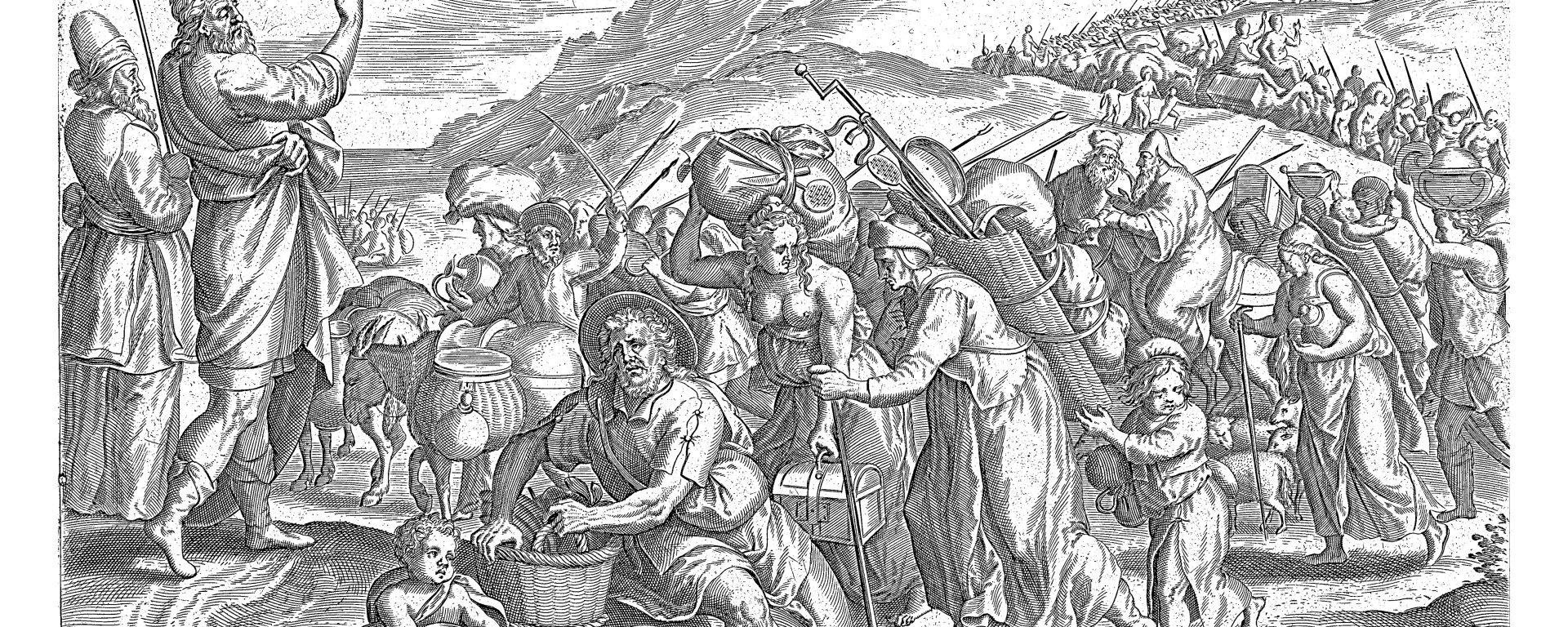The Need for Institutions
How do we imagine justice being dispensed in ancient times? Robert Alter notes in his translation of the Hebrew Bible that the language used to describe the characteristics of a good judge (God-fearing, truthful, haters of bribes) is similar for “the recruitment of judges [that] occurs in both Hittite and Egyptian documents dating from the late second millennium B.C.E.”[1]
This widespread archetype is that of a wise, older judge deciding cases to general acceptance and celebration. Less attention is paid to the development of institutions. We are keenly aware of the volume of cases facing modern judges and the need for courthouses, procedural rules and the human infrastructure of filing clerks, sheriffs, and court registrars. More recently our courts have protected the judicial branch through recognising the constitutional guarantee of independent salary adjudication. The recent public complaint by Chief Justice Wagner of delays in judicial appointments is essentially an institutional concern. Once it is recognised the vast number of disputes are settled by the parties even after they pursue formal court proceedings the need for institutional efficiencies and work should be obvious.
There is a tension however between the ideal of decisional wisdom resting in an individual and effectively serving the community. Ancient literature has many stories of litigants pleading for justice in the face of delay. It also evidences the development of institutions.
This is recorded in the Old Testament in Exodus 18 during the Israelites time in the desert. Moses is reported as being overwhelmed by the number of people seeking his judgment.
Jethro, Moses’s Midianite father-in-law, comes across a weary Moses, who has sat all day listening to every dispute among the Israelites. As the line of disgruntled petitioners lengthens into the evening Jethro realizes this is doomed to wear out both Moses and the people.
Jethro asks Moses why he is judging alone. Moses’ answer affirms the single model of judging. “Because the people come to me to seek God’s will. Whenever they have a dispute, it is brought to me, and I decide between the parties and inform them of God’s decrees and instructions (Ex. 18:16 NIV).” Jethro points out the problems with Moses’s one-man justice system and proposes solutions.
The Problem?
- The lineup is too large for Moses to handle alone.
- People are upset with the delay in accessing justice.
- The people don’t know the law, which exacerbates the number of daily cases that come before Moses.
The Solution?
- Teach the people the law.
- “Select capable men from all the people – men who fear God, trustworthy men who hate dishonest gain (Ex. 18:21 NIV).” Have them sit for all the simpler cases, so that only the difficult ones make it to Moses.
Jethro addresses not only the need to expand judicial capacity: he points out that the people need to understand the law so that they can settle their own disputes according to law.
He also embeds justice in a judicial branch. “Moses listened to his father-in-law and did everything he said. He chose capable men from all Israel and made them leaders of the people, officials over thousands, hundreds, fifties and tens. They served as judges for the people at all times: Exodus 18:24-25 (NIV) The difficult cases they brought to Moses, but the simple ones they decided themselves.” Thus was the first justice system of ancient Israel established.
Lessons from Jethro
Lesson #1: Teach the People the Law.
Exodus 18:24-25 explains how Moses instituted a legal structure whereby the people could be judged efficiently. But what about the first problem? The people don’t know the law.
Every chapter from Exodus 20-34 is dedicated to teaching the Israelites the law. This is where the Ten Commandments enter the narrative. Despite a false start, with the distractions of the golden calf and the breaking of the first tablets, at the end the Israelites have written laws to guide their conduct. The second half of the book of Exodus is all about how the people of Israel gained common knowledge of the law.
From these earliest times the success of law, as noted recently by Gillian Hadfield, required a “public and mutually recognized source for a single answer, everyone knows what everyone knows about that answer.”[2]
The dizzying complexity of modern laws and regulations depends on lawyers and administrators who can apply the law to the facts. Nevertheless the knowability of rules that people can understand and apply to their own circumstances has always been integral to a functional justice system.
Lesson #2 Managing case flow isn’t an option.
This ancient story documents the need to distribute the cases amongst a body of judges is coeval with the idea of knowable laws. Remarkably it also demonstrates the need to discriminate between straightforward and difficult cases.
Despite our expectation that ancient justice was dispensed by individuals the tendency of demand to outstrip judicial capacity is natural to every just system and requires institutional responses. It should not surprise that it was delay that kick-started ancient Israel’s justice system, demonstrating again that “timeliness is integral to justice.”
[1] Robert Alter, The Hebrew Bible: A Translation with Commentary (New York: W.W. Norton, 2019). 289, fn Exodus 18:21.
[2] Gillian Hadfield, Rules for a Flat World (New York: Oxford University Press, 2017), 25.
